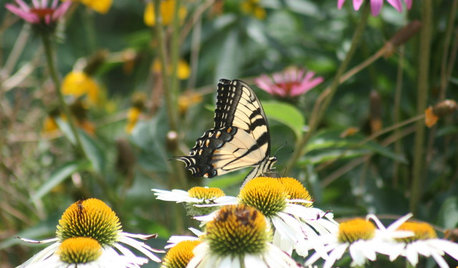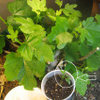losing the spider mite battle
serge94501
9 years ago
Featured Answer
Sort by:Oldest
Comments (34)
BarbJP 15-16/9B CA Bay Area
9 years agoRelated Professionals
Windham Landscape Architects & Landscape Designers · Essex Landscape Architects & Landscape Designers · Roosevelt Landscape Architects & Landscape Designers · Middletown Landscape Contractors · Williamsburg Landscape Contractors · Americus Landscape Contractors · Dudley Landscape Contractors · Firestone Landscape Contractors · Gresham Landscape Contractors · La Vista Landscape Contractors · Mastic Beach Landscape Contractors · Roseville Landscape Contractors · San Carlos Park Landscape Contractors · Smyrna Landscape Contractors · South Lake Tahoe Landscape Contractorsjohnmerr
9 years agoserge94501
9 years agohoosierquilt USDA 10A Sunset 23 Vista CA
9 years agofruitnut Z7 4500ft SW TX
9 years agojohnmerr
9 years agomeyermike_1micha
9 years agohoovb zone 9 sunset 23
9 years agohoosierquilt USDA 10A Sunset 23 Vista CA
9 years agoserge94501
9 years agojohnmerr
9 years agofruitnut Z7 4500ft SW TX
9 years agoaztcqn
9 years agoserge94501
9 years agohoosierquilt USDA 10A Sunset 23 Vista CA
9 years agoserge94501
9 years agohoosierquilt USDA 10A Sunset 23 Vista CA
9 years agoserge94501
9 years agoMad Ferret
9 years agohoosierquilt USDA 10A Sunset 23 Vista CA
9 years agomeyermike_1micha
9 years agohoosierquilt USDA 10A Sunset 23 Vista CA
9 years agoscott_madison Zone 5a- Madison, WI
9 years agoponcirusguy6b452xx
9 years agolast modified: 9 years agocatchick
8 years agoBarbJP 15-16/9B CA Bay Area
8 years agoapg4
8 years agolast modified: 8 years agoPKG
8 years agocory (Zone 7a, NJ)
8 years agojbclem
8 years agoponcirusguy6b452xx
8 years ago
Related Stories

EARTH DAYThe Case for Losing the Traditional Lawn
Work less, help the environment and foster connections by just saying no to typical turf
Full Story
HEALTHY HOMEWhat You Need to Know About Dust and How to Fight It
Breathe easier with these 10 tips for busting mites, dander and other microscopic undesirables
Full Story
SELLING YOUR HOUSE7 Must-Dos on the Day You Show Your House
Don’t risk losing buyers because of little things you overlook. Check these off your list before you open the front door
Full Story
HOUSEKEEPINGHow to Relax and Put Housework in Its Place
If household disarray is making you stressed and unhappy, try approaching it with a different point of view
Full Story
GARDENING GUIDESLessons in the Rewards of Selfless Gardening
Let go of gardening for your own vision and watch the garden’s own true vision come forth
Full Story
LAUNDRY ROOMSMake a Clean Break With Laundry Chaos
Bins and bags, sorters and other storage — we've got several loads' worth of ways to keep your laundry neat
Full Story
REMODELING GUIDES15 Ways to Design an Easy-Clean Home
Spend more time doing what you love with these pointers for minimizing cleaning needs throughout the entire house
Full Story
HOUSEPLANTSIndoor Winter Gardens for Cheerier Days
Bring plants inside for drab-days mood boosting — not to mention cleaner indoor air and protection for your greenery
Full Story
OUTBUILDINGSThe Glass-Walled Cabin That Romance Built
Envisioning sunsets and starry skies, newlywed artists construct a 1-room retreat on a family farm
Full Story
HOUSEPLANTSHow to Grow Orchids Indoors
Orchids are the exotic aristocrats of the flower world and can make themselves comfortable in almost any home
Full StoryMore Discussions







meyermike_1micha